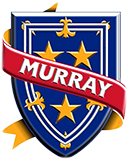Home > Public Works > FOG
FOG (Fats, Oils, & Grease)
Why a Fats, Oils, and Grease program?
Fats, oils and grease (FOG) cause serious problems in the sewer collection system. FOG sticks to the walls of the pipes when put through the drain. Over time, FOG can restrict the flow in a pipe until a sewer stoppage occurs. Stoppages and overflows can create smelly, dirty messes-possibly damaging your business, property, profits, as well as the environment. FOG is the Cholesterol of the sewer collection system.
What are Grease Removal Devices?
Grease removal devices separate fats, oils and grease (FOG) from wastewater before the water enters the sewer. There are large outdoor grease interceptors and smaller indoor grease traps.
Benefits of keeping FOG from going down the drain:
- Avoiding expensive clean-up costs and penalties
- Avoiding the loss of business due to sewer back-ups
- Keeping the environment clean
If a spill or overflow occurs:
Stop water flowing to the interceptor and notify local sewer agency of the spill by calling 270- 762-0336 or 270-762-0340 during regular business hours, 7:00 am to 3:30pm, after hours call Murray Police Department 270-753-1621 as soon as possible. You probably will need to call a plumber to clean sewer lines and verify the interceptor is working properly. If cleaning sewer lines clean from the interceptor outlet to the main sewer line in addition to cleaning the lines from the building to the interceptor inlet. This will help avoid future overflows. Prevent outdoor grease over flows from impacting public health and the environment, including storm drains by containing the overflow using dirt if necessary, or another substance, until all grease is cleaned up. Clean any FOG that is on the ground by using absorbent materials, then placing the materials in plastic bags and place in the trash. Never use hot water to clean FOG spills.
Signage
Post Proper Disposal of Fats, Oils and Grease Best Management Practices (BMPs) signs above sinks and, if possible, on the front of dishwashers.
Recycling
Recycle used cooking oil and grease by collecting and storing in a recycling barrel or bin.












